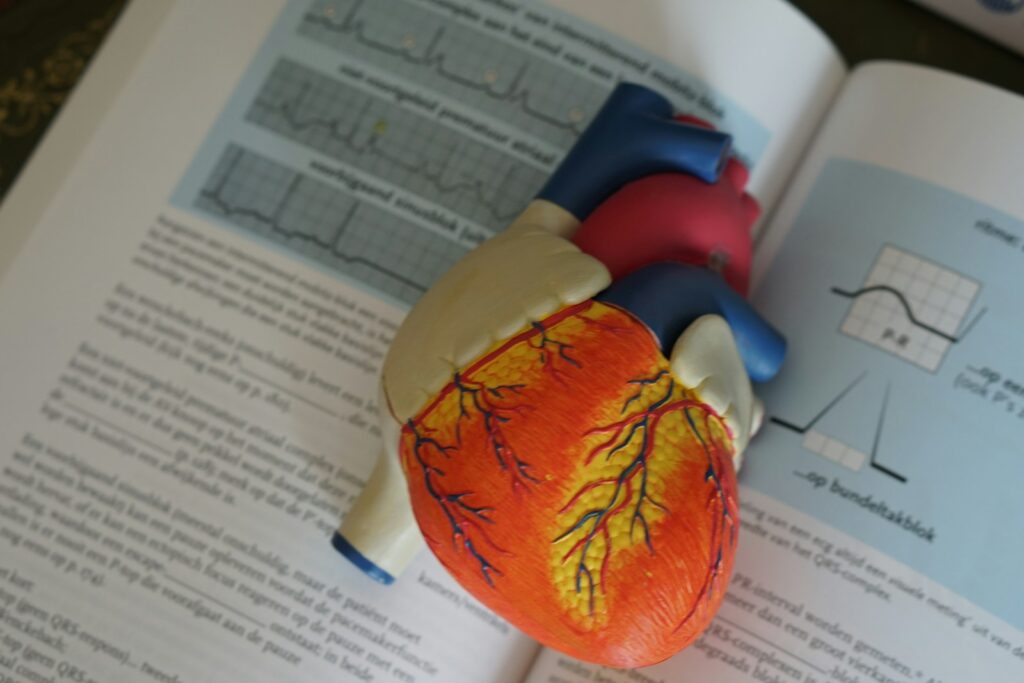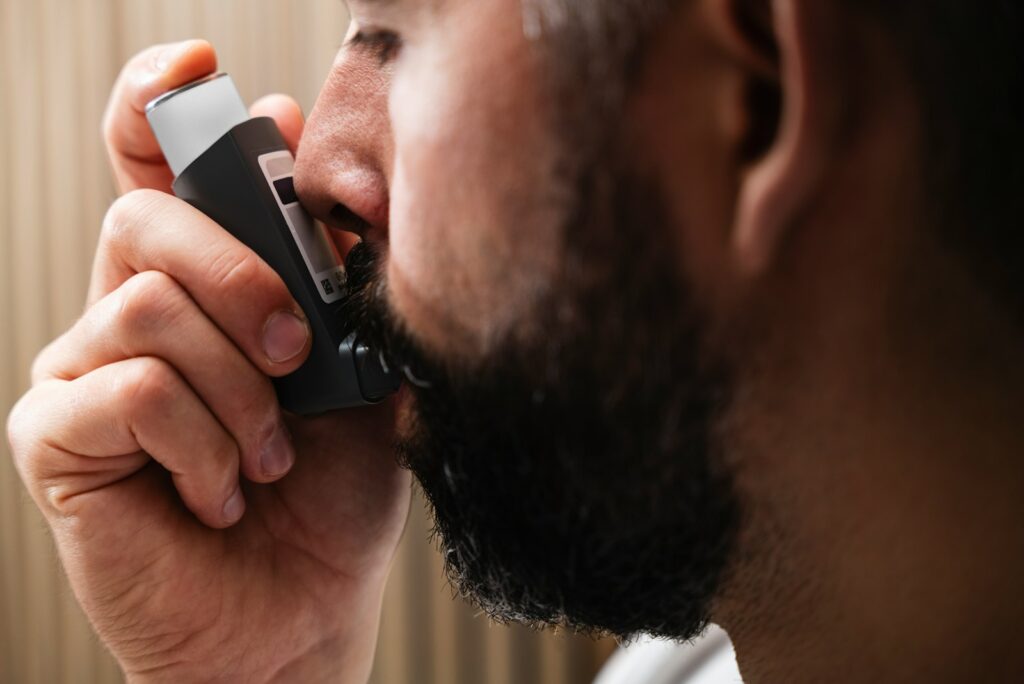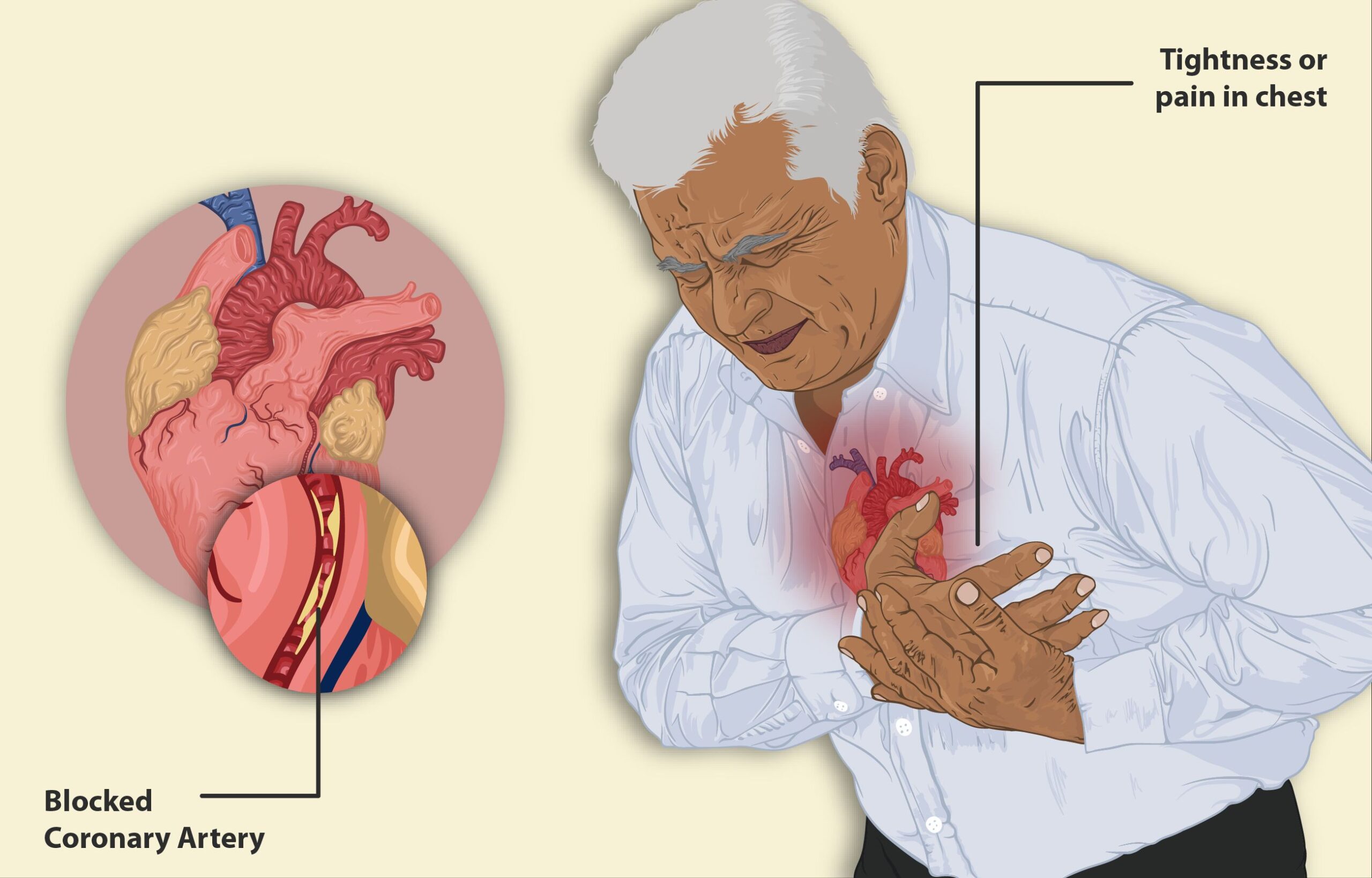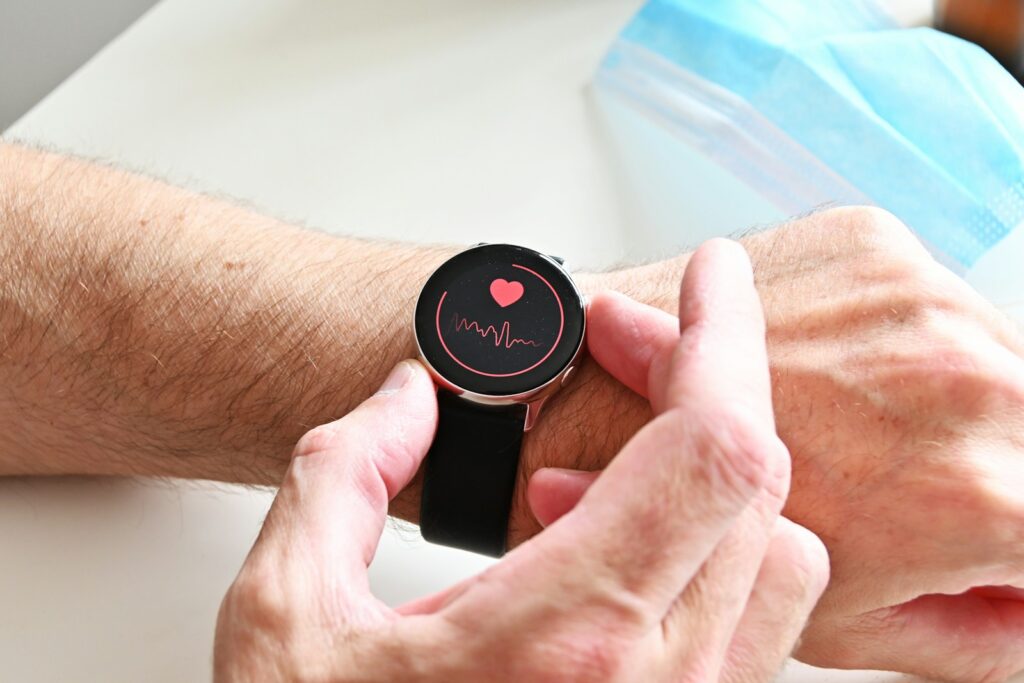
A heart attack isn’t always the dramatic, sudden event often depicted in movies, where someone clutches their chest and collapses. While those acute episodes certainly happen, medical experts want you to understand a critical truth: your body often sends subtle, sometimes easily dismissed, warning signs weeks or even a month before a major cardiac event. Recognizing these early indicators can make all the difference, potentially saving your life or the life of someone you care about.
Many of us are prone to shrugging off vague symptoms, attributing them to stress, aging, or minor ailments. However, cardiologists like Dr. Jacqueline Tamis-Holland clarify that ignoring these seemingly minor red flags can be a life-threatening decision. As Dr. Bryan Martin, a Geisinger cardiologist, emphasizes, “Recognizing these early symptoms can be crucial for timely medical intervention—and can potentially save lives.” This in-depth look will help you understand the less obvious signals your body might be sending, empowering you to take proactive steps for your heart health.
Heart attacks occur when blood flow to the heart gets blocked, often by a clot, leading to the heart muscle being deprived of oxygen. If this vital blood flow isn’t quickly restored, the result can be permanent heart damage or even death. This is why knowing these subtle pre-heart attack symptoms, which can precede an event by days or even weeks, is so incredibly important. Let’s delve into the first five warning signs that deserve your immediate attention.

1. **Unusual and Persistent Fatigue**: Feeling tired at the end of a long day is a normal part of life, but an overwhelming, unexplained fatigue is an entirely different matter and a significant red flag. This isn’t just ordinary tiredness; it’s an exhaustion so profound that it can make simple daily tasks feel impossible. Dr. Martin notes that “some patients have extreme fatigue or unexplained weakness, sometimes for days or weeks before a heart attack.”
This type of fatigue often doesn’t improve with rest, and you might find yourself feeling drained without having done anything strenuous. It’s particularly common in women, with approximately 70% of women reporting unusual fatigue before a heart attack. This symptom appears because your heart may be struggling to pump blood effectively, thus depriving your body of the oxygen it needs to function normally. If you suddenly experience this kind of profound, unexplained exhaustion, it’s an alarming symptom that warrants immediate investigation by a healthcare professional.

2. **Increased Anxiety or Sense of Impending Doom**: One of the most surprising and unsettling early warning signs of a heart attack can be a profound psychological shift: a sudden increase in anxiety or an overwhelming sense of impending doom. This isn’t merely everyday stress; it’s a deep, unprompted feeling that something terrible is about to happen, a “pre-warning from your body that something is not alright,” as medical experts describe it.
This psychological component is often reported by heart attack survivors, who describe intense anxiety, panic, or fear that seems to come from nowhere, sometimes accompanied by restlessness and an inability to find a comfortable position. While this sensation can also occur during a panic attack, when it arises suddenly and without apparent cause, especially alongside physical changes, it’s a critical signal. This feeling can sometimes precede other more obvious physical symptoms, highlighting the importance of trusting your intuition and discussing any unusual feelings of dread with your doctor.

3. **Shortness of Breath**: Difficulty breathing is a classic heart attack symptom, but it can also manifest subtly as an early warning sign, even without accompanying chest pain. You might experience a sensation of breathlessness during light activities, or even while at rest, feeling as though you can’t get enough air. This symptom is particularly common in women and older adults.
This occurs because if the heart muscle is compromised, it struggles to pump blood effectively. This can lead to fluid backing up in the pulmonary veins and even leaking into the lungs, causing shortness of breath. This condition is sometimes referred to as congestive heart failure. Many patients experiencing this might also develop a persistent cough or wheezing. While shortness of breath can be a sign of other conditions, when it’s new, worsening, or occurs without exertion, it’s a vital sign that your heart may not be functioning as it should and requires immediate medical attention.

4. **Chest Tightness or Discomfort**: While the crushing chest pain is what most people associate with a heart attack, the early warning sign often presents as a more subtle discomfort, rather than sharp pain. This can manifest as a feeling of heaviness, pressure, squeezing, or tightness in the center or left side of the chest. Some patients describe it as if “an elephant is sitting on their chest,” or a pinching or burning sensation, similar to severe heartburn.
This discomfort typically lasts more than a few minutes or may come and go. It’s often described as an uncomfortable pressure rather than acute pain, which is precisely why it’s frequently dismissed as indigestion, stress, or a pulled muscle. Dr. Jeffrey Boone, a cardiologist, warns that even if symptoms seem mild or you’re unsure, “when it comes to your heart, hesitation can be dangerous.” It’s crucial to remember that not all patients, especially women and those with diabetes, will experience this classic chest pain, but any unusual or persistent chest discomfort warrants immediate investigation.
5. **Sleep Disturbances**: Disrupted sleep, specifically new onset insomnia or frequent waking during the night, can be another subtle indicator that your body is under stress, potentially signaling an underlying cardiac issue. While many factors can contribute to poor sleep, when it appears without a clear explanation and alongside other vague symptoms, it’s worth noting.
Cardiologist Dr. Tamis-Holland specifically points out that “insomnia that started before the heart attack” is one of the less obvious symptoms women are more likely to experience. Your body’s internal systems are intricately linked, and the strain on your cardiovascular system can manifest in various ways, including affecting your sleep patterns. If you’re experiencing unusual difficulty sleeping or waking frequently, and it’s a new or worsening pattern, it’s a symptom that should be discussed with your healthcare provider to assess your overall health and heart risk.
Decoding the Remaining Six: Vital Pre-Heart Attack Symptoms You Can’t Afford to Ignore
As we’ve explored, the journey toward a heart attack isn’t always marked by dramatic, chest-clutching pain. Often, your body whispers, rather than shouts, its distress, sending subtle signals that can be easily dismissed. Yet, recognizing these less obvious indicators can be incredibly empowering, allowing you to take proactive steps for your heart health. Let’s continue our vital exploration, delving into the remaining six pre-heart attack symptoms that demand your attention.

6. **Indigestion or Heartburn**: It might seem counterintuitive, but persistent digestive issues, particularly if they are new or different from your usual symptoms, can surprisingly be a significant red flag for an impending heart attack. Many heart attack symptoms can closely mimic common indigestion or heartburn, manifesting as a burning sensation in the chest or upper abdomen. This is why many people, especially women, might mistakenly attribute these discomforts to a simple upset stomach or a heavy meal, delaying crucial medical attention.
This phenomenon occurs because the heart and digestive system share similar nerve pathways, leading to referred pain that can be misinterpreted. Unlike typical heartburn that might resolve with antacids or rest, heart-related digestive distress often doesn’t respond to these common remedies and can persist or recur. It is crucial to differentiate this from stable angina, which typically subsides with rest or medication, whereas heart attack pain does not. If you experience such symptoms without a clear digestive cause, particularly if they are new or accompanied by other warning signs, it’s imperative to consider your heart’s health.

7. **Cold Sweats**: Breaking out into unexplained cold sweats is a common, yet frequently overlooked, early warning sign of a heart attack. This isn’t the kind of sweating you experience after a strenuous workout, in a hot environment, or during menopause. Instead, it’s a sudden, profuse, and often clammy perspiration that appears without any apparent physical exertion or external heat. Your skin might feel moist, cool to the touch, and may even appear pale or grayish, indicating that your body is in distress.
This symptom arises because your body, sensing a lack of oxygen-rich blood reaching its tissues, goes into a “fight or flight” response, activating the nervous system. This physiological stress can trigger an unusual sweating response as your body attempts to regulate its temperature or deal with the internal emergency. When cold sweats occur randomly, especially if disconnected from physical activity and combined with other vague symptoms on this list, they serve as a critical alarm that something is not right with your cardiovascular system and warrant immediate investigation.

8. **Dizziness or Lightheadedness**: Feeling suddenly dizzy or lightheaded, particularly if it’s a new or worsening sensation, can be a serious indicator of an underlying heart problem. This symptom often occurs when your heart isn’t pumping effectively, leading to insufficient blood flow to your brain. When the brain doesn’t receive enough oxygenated blood, it can cause you to feel unbalanced, faint, or even lead to losing consciousness.
Such sensations can be particularly dangerous, increasing the risk of falls or accidents, and are often compounded by other symptoms like chest pain or shortness of breath. If you experience sudden dizziness or lightheadedness, especially when standing up quickly or during light activity, and it’s accompanied by other cardiac warning signs, it signals that your blood pressure may have dropped suddenly due to your heart being in distress. This symptom is serious and requires immediate medical attention to assess your cardiovascular function.

9. **Unexplained Weakness**: While we previously discussed extreme fatigue, a general feeling of unexplained weakness or a profound lack of energy is another subtle, yet significant, early warning sign. This isn’t simply feeling tired; it’s a physical sensation where simple daily tasks suddenly feel impossible to complete, as if your muscles lack their usual power. This weakness can appear days or weeks before a heart attack, often leading individuals to dismiss it as general stress, aging, or a minor ailment.
This symptom arises because your heart, struggling to pump blood efficiently, is unable to adequately deliver oxygen and nutrients to your body’s tissues and muscles. This deprivation can manifest as a pervasive sense of weakness that doesn’t improve with rest, leaving you feeling drained and physically incapable without having exerted yourself. If you notice a sudden, inexplicable loss of strength or energy that interferes with your routine, it’s a critical sign that your heart might be under stress and warrants immediate discussion with a healthcare provider.

10. **Nausea and Vomiting**: Digestive disturbances, including unexplained nausea and vomiting, are often overlooked but can be crucial warning signs of an impending heart attack. Many patients, especially women, report experiencing these gastrointestinal symptoms during a cardiac event, which are frequently mistaken for a common stomach bug or food poisoning. The nausea can be sudden and severe, leading to unprompted vomiting that seems to come out of nowhere.
Similar to indigestion, these symptoms occur because the heart and digestive system share interconnected nerve pathways, causing pain signals to be interpreted by the brain as coming from the stomach area. This makes it particularly challenging for individuals to recognize the true origin of their discomfort. If you experience sudden nausea or vomiting that doesn’t align with a typical stomach ailment, especially if it’s accompanied by other unusual symptoms, it’s essential not to dismiss it as merely an upset stomach, especially if you have existing risk factors for heart disease.
11. **Heart Palpitations**: Irregular or rapid heartbeats, often described as a fluttering sensation in your chest, can be a direct indication that your heart is under significant stress. While occasional palpitations can be benign—perhaps from too much coffee or stress—new-onset or persistent palpitations that feel like your heart is beating too quickly, skipping beats, or doing a strange rhythm warrant immediate attention. You might even feel this irregular rhythm in your ears or neck.
When your heart is deprived of oxygen and struggles to pump blood effectively, it may go into overdrive or develop abnormal rhythms in an attempt to maintain adequate circulation. Dr. Bryan Martin emphasizes, “This is definitely something to pay attention to and mention to your doctor.” Heart palpitations are serious and should be investigated by a cardiologist as soon as possible to determine their cause and rule out an underlying cardiac issue, as they can signal that your heart isn’t functioning optimally.
Understanding your individual risk factors for heart disease—such as high blood pressure, high cholesterol, diabetes, and a family history of heart disease—empowers you to take preventive measures. While a heart attack can strike anyone, regardless of age, sex, or health status, being informed and proactive can significantly reduce your risk. Listen to your body’s intuition; it often provides a “pre-warning that something is not alright.” By staying informed, being proactive, and prioritizing your heart health, you can take charge of your well-being and keep your ticker in top shape for years to come. Your heart is telling you something; it’s time to listen.





